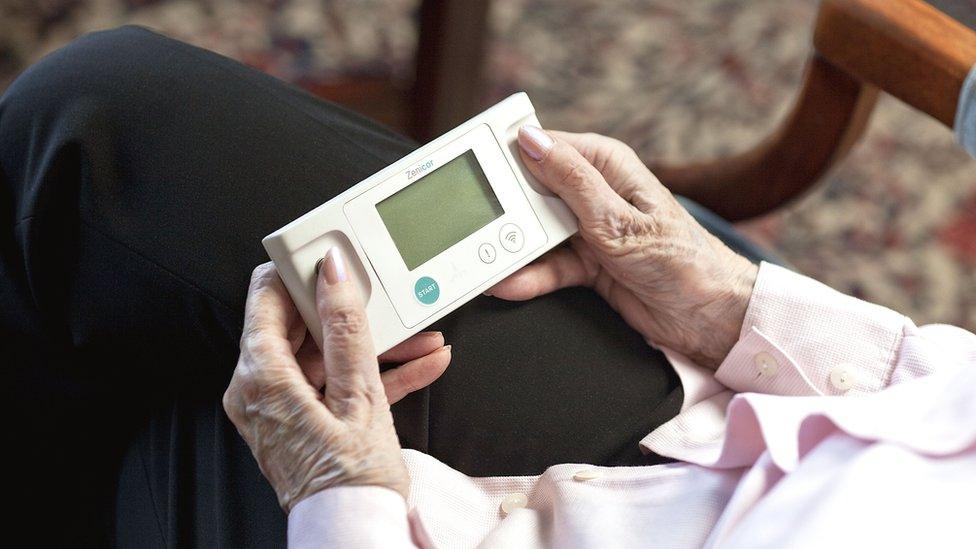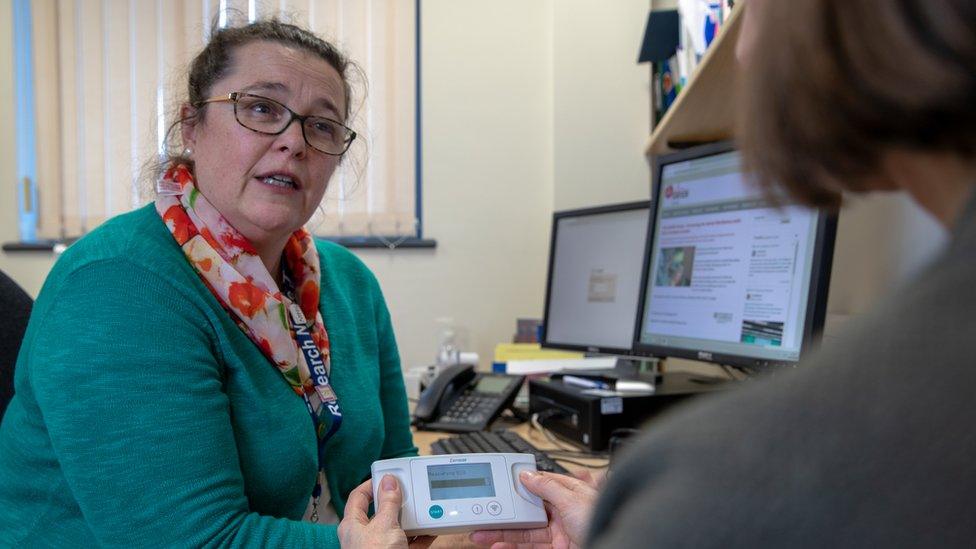Heart test trial aimed at reducing strokes begins in East Anglia
- Published
- comments

Individuals will be asked to take regular readings of their heart beat to establish whether or not they have atrial fibrillation
Scientists have said they hope a new large-scale trial for a common heart condition will see a drop in strokes.
The research led by the University of Cambridge will first test patients over the age of 65 in East Anglia for atrial fibrillation (AF).
AF is behind an irregular heartbeat and is often undiagnosed.
Scientists said it increased the risk of having a stroke five-fold, and was associated with heart attacks and premature death from other causes.
AF affects up to one-in-10 people over the age of 65 but does not necessarily show symptoms, with 10% of strokes occurring in people unaware they have AF.
The study results will help decide whether the NHS instigates a national screening programme for AF, and if it would be value for money.

Nurses will explain to patients how to use the device to monitor heart rhythms
The researchers have begun working with GPs and nurses in 12 practices around Cambridge, Peterborough, Norfolk and Hertfordshire to fine tune the screening process before embarking on the main trial.
Patients taking part will be trained by their GP practice nurse to use a handheld device to record their heart's rhythm and electrical activity at home.
Prof Jonathan Mant, senior investigator for the research programme, said the East Anglia trial was important.
"We need to determine whether it is feasible to implement this new model of screening in general practice before we begin the main trial because it is so large and will involve so many people," he said.
"We will also find out how patients respond to our invitation to take part in the study and what it is like for them to attend screening."
Ultimately 120,000 patients in 300 general practices across England are expected to take part in the research, which will be the largest ever randomised controlled trial for atrial fibrillation, according to the university.
Over the following five years scientists will measure whether the screening and treatments make a difference to people's health and leads to a reduction in the number of strokes, heart attacks, and deaths.
The AF study, which is called SAFER, external, is funded by the government supported National Institute for Health Research, external.
- Published16 September 2018
